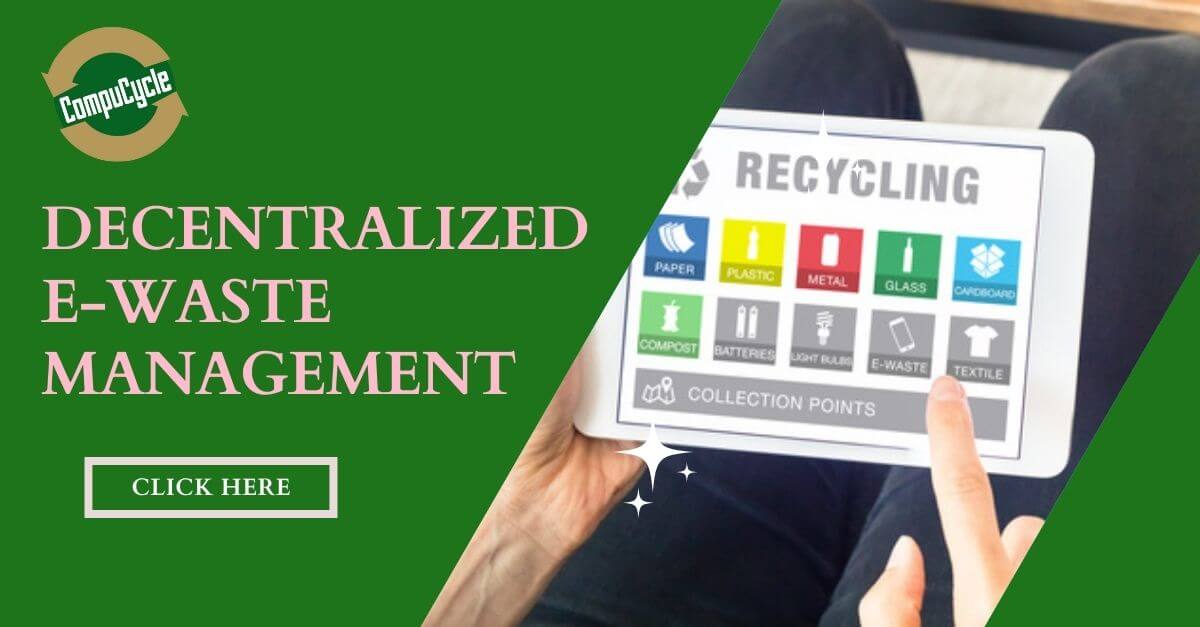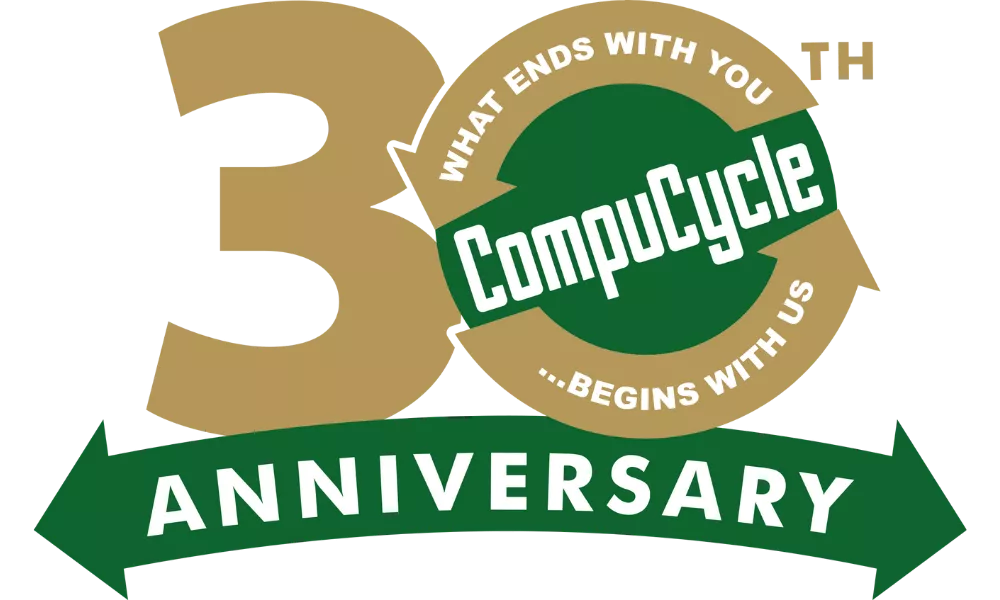
The rapid advance of technology does not look like slowing down any time soon. In fact, electronics manufacturing is one of the biggest industries in the world right now! This is not surprising considering that the demand for cell phones, televisions, computers and laptops, and entertainment electronics is at an all-time high.
Naturally, all products have a life cycle. What is brand new and innovative today will be old and obsolete tomorrow. The pace at which consumers and businesses alike are going through electronics is unprecedented. This has created a monumental e-waste problem across the world.
When consumers are done with them, electronic goods inevitably find themselves in landfills and dumps across the country. Better e-waste management techniques are required to tackle this problem.
The Problem with E-Waste
The problems that e-waste poses are well-known to everyone. Let’s go over them briefly to understand why e-waste management techniques need revisions.
- Health Risks: When electronics are not recycled responsibly, there are substances within that can be hazardous to an individual’s health. If electronics have been incorrectly disposed of, then these risks can become realities. People can accidentally be exposed to carcinogenic or toxic substances. To address this, businesses and governments should recruit the help of e-waste management companies.
- Security Risks: Another problem with e-waste is that it can often create security liabilities for businesses. Electronic equipment that has been incorrectly disposed of can still carry sensitive data that can end up in the hands of malicious parties. Naturally, businesses would want to protect their data and secure themselves against extortion or cyber-attacks. This is why e-waste management services are becoming so popular.
- Environmental and Compliance Risks: Businesses today have to be careful that they are conducting their activities in a secure sustainable manner. Some states have regulations that must be adhered to as non-compliance can result in hefty fines and bad PR that any business would wish to avoid.

The Problem with E-Waste Management
E-waste management is a public concern first and foremost. Of course, corporations will recruit the services of professional services to meet compliance guidelines, but the problem of e-waste is not necessarily a corporate problem.
Given that it is a public problem, the expectation is that the government will take the lead in resolving the issues arising out of poor e-waste management and implement better methodologies and techniques.
Unfortunately, this idea suffers from the same thing any other area of public interest suffers from – bureaucracy. Governments have to be transparent, consider all stakeholders, do several studies, and lack the profit motive. Not to mention that to actually get anything done, the entire government machinery will need to be mobilized. This means that change is slow and marginal.
Furthermore, the government wishes to centralize all decisions, and this creates problems of its own. Enter the solution, decentralized e-waste management, and how e-waste management services can help move along the process.
Decentralized E-Waste Management
Decentralized e-waste management means taking the pressure off of a central entity and dividing the labor into various smaller entities. In the previous section, we spoke about this singular entity as the government, however, decentralized e-waste management can be seen as a self-sufficient unit of e-waste management.
Here’s what we mean. In the case of the government, decentralized e-waste management means delegating the responsibility to smaller organizations such as private e-waste management solutions companies. These private businesses have advantages that the government does not.
Processes are faster because they have to be competitive, they are more cost-effective for the same reason as well! Furthermore, they do not have the same need to be transparent which allows them to be more flexible and dynamic than government agencies.
Decentralized e-waste management can then also be looked at within organizations as the process of making each section or department of the organization responsible for its own e-waste management. This allows for better e-waste management overall and higher degrees of compliance.
Not only that, but it also greatly reduces the problems associated with e-waste mentioned earlier. At a societal level, the decentralization of e-waste can engage various stakeholders and make distribute some of the e-waste management responsibilities to them.
The appeal of decentralized e-waste management has made the need for e-waste management companies evident. CompuCycle is a leading e-waste management services provider that can handle e-waste for any type of organization and process it using the same processes used by the Department of Defense. We also have a state-of-the-art processing plant that is the first of its kind. CompuCycle is proud to be the exclusive electronics recycling company in Texas providing shredding of scrap electronics into raw materials and separating the shredded electronics into steel, aluminum, copper, plastics, and circuit boards for direct shipment to smelters, mills, and refineries. These capabilities provide our customers assurance that when the product is sent to CompuCycle, it is either refurbished for reuse and all scrap electronics are processed by CompuCycle to their end of life. The bottom line, CompuCycle is the solution for responsible and secure electronic recycling.
Recent Articles
CompuCycle Becomes Exclusive Woman-Owned E-Waste Processor in Texas with ISO 27001 Data Security Certification
New Information Security Management System (ISMS) Certification Guarantees End-to-End Data Confidentiality and Integrity for Corporate IT Asset Disposition (ITAD). HOUSTON, TX – December 9, 2025 – CompuCycle, an industry leader in secure and sustainable IT…
Read MoreSecure Electronics Disposal in Houston: Why the City’s Largest Industries Trust CompuCycle
When a major healthcare system decommissions thousands of laptops, or an oil and gas company retires an entire data center, one question comes up again and again: What happens to all that data — and…
Read MoreCompuCycle Executives Join R2 TAC and e-Stewards Leadership Council to Advance ITAD Standards
Houston-based ITAD provider deepens its industry influence through active participation in standard-setting committees. As corporate ITAD needs evolve alongside stricter compliance and ESG requirements, CompuCycle continues to lead the way—this time by contributing directly to…
Read MoreI’m Just a Computer: A Journey Through ITAD Recycling
Meet Chip the Computer – he’s about to take you on an unforgettable journey through the world of IT Asset Disposition (ITAD). Buckle up for an adventure that’s both educational and entertaining! Chapter 1: “Hello,…
Read More


